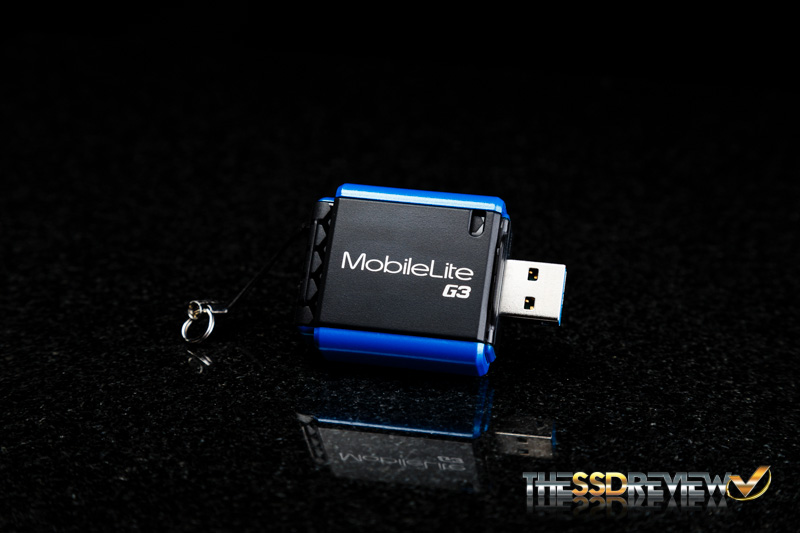FLASH MEDIA TEST PROTOCOL
In order to test the rated speeds of the card we choose to use a few popular synthetic benchmarks which include ATTO, CrystalDiskMark, and Anvil Storage Utilities Professional. Not only are we going to use these benchmarks, we are going to run a comparison against other cards I have in my bag and test in a real world use scenario. This should give us enough to confirm the rated specs and give us a more in-depth view on how it performs.
To connect the SDXC card to our computer we have the Kingston MobileLite G3 USB 3.0 card reader. It is a compact and simple plug-and-play card reader that allows for USB 3.0 transfer speeds for any SD / SDHC / SDXC and microSD / SDHC / SDXC cards. It is a pretty good buy especially at only around $10 and will allow us to test the Kingston Ultimate at up to its max rated speeds.
ATTO DISK BENCHMARK VER. 2.47
ATTO Disk Benchmark is a relatively easy-to-use benchmark tool. ATTO Disk Benchmark relies on testing different file sizes with highly compressible data. Although this is not the best representation of media files which are, for the most part, highly incompressible, it is a good start and is still the main mechanism most manufacturers use to determine their product specifications. In our testing, we have left the benchmark settings to default.
Off the bat, ATTO shows us what Samsung really meant when they stated 48MB/s transfer speeds, and that was the EVO’s read speed when transferring data from the card. ATTO gives us the highest results of 46MB/s read and 27MB/s write.
CRYSTALDISKMARK BENCHMARK VER. 3.0.3
Crystal Disk Mark is visually straightforward and is used for measuring the speeds at which your storage device reads and writes with random, mostly incompressible, data. Random data is more consistent with everyday use of a computer, such as transferring videos, pictures and music. Thus, this benchmark will be a better representation of speeds to expect on a video or stills camera over ATTO.
Next up, Crystal Disk Mark shows us a max of 46MB/s read and 20 MB/s write; still shy of the rated 48MB/s read we would expect.
ANVIL’S STORAGE UTILITIES PROFESSIONAL 1.1.0
Anvil’s Storage Utilities is the best software program available for benchmarking flash media. Not only does it give an accurate look at transfer speeds and throughput, but also, it goes even further by identifying file sizes, disk access times, as well as system and device identification. It even has many extra features such as endurance torture testing and a TRIM button feature to manually trigger TRIM on supported devices.
Finally, Anvil’s Storage utilities gives us a max of 44MB/s read and 18MB/s write.
 The SSD Review The Worlds Dedicated SSD Education and Review Resource |
The SSD Review The Worlds Dedicated SSD Education and Review Resource | 


I wish those cards had better 4K speeds (yeah i know this is not expected from sd cards) so it would serve as a great expension for smartphone storage.